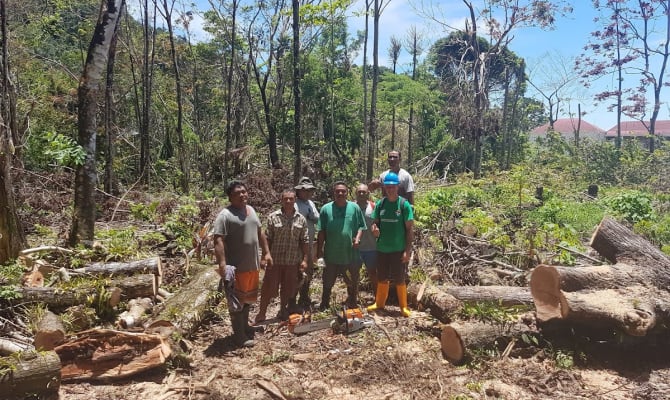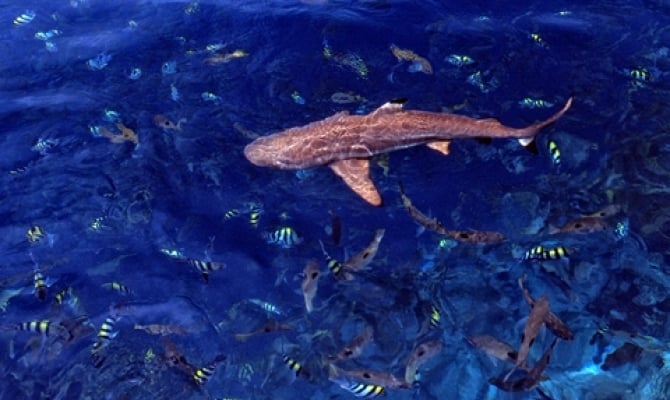Online portal allows small Island countries with limited capacity and EIA resources to reach out to others and source reference materials
The Pacific region is home to some of the world’s most unique biodiversity and ecosystems. It hosts an array of threatened and endangered marine creatures, while three of the world’s biodiversity hotspots can be found in its islands, areas which hold a high number of endemic species – species that cannot be found anywhere else in the world.
Over the years, the Pacific’s ecosystem and natural environment has experienced increasing multiple negative impacts as a direct result of human activities such as marine pollution, logging and mining, over-fishing, as well as increasing infrastructural development. There are also emerging issues such as deep seabed mining and the compounding impacts of climate change with sea-level rise.
This is where the need for robust planning systems such as environmental impact assessments, strategic environmental assessment and environmental and socials safeguard systems are necessary to support national and regional sustainable development.
Environmental Impact Assessment (EIA) is the primary instrument for planning, assessing and managing development projects to support sustainable and resilient development goals. It is a two-way process for identifying and managing a development’s potential impacts on the environment as well as the potential impacts of the environment on development.
The Secretariat of the Pacific Regional Environment Programme (SPREP) through its Environmental Monitoring and Governance (EMG) programme, is the lead regional development agency on EIA capacity building in the region, with over 25 years of supporting environmental assessment awareness and training programmes.
As part of this effort to support environmental assessment and capacity building in the Pacific includes the development of the Pacific Network for Environmental Assessment (PNEA) – an online community of practice for all EIA) and Strategic Environmental Assessment (SEA) practitioners in the Pacific region founded in 2016 to support the face-to-face work that has been carried out since the early 1990s.
During the past 2 years, the PNEA has grown in membership from an initial 20 registrations to now over 200 members with almost parable male and female representatives from all SPREP member countries and territories.
The role of the PNEA portal has also grown since the pandemic with the global border restrictions practitioners are no longer able to attend face-to-face trainings or conferences and have become reliant on virtual support. The PNEA has acted as hub for sharing of information and hosting training materials. The purpose of this webinar hosted by SPREP’s EMG programme was to inform existing current and potential PNEA members on “how they can make the best use of the online portal” and conducted a virtual Talanoa to discuss a shared vision for what the PNEAs future should be to support EIA and SEA practitioners from within the Pacific.
In his opening statement, SPREP Director General,Kosi Latu, said: “The PNEA was launched in 2016 as an initiative of the EMG programme, which is aimed at providing support for our Pacific Island countries and territories who work with EIA and SEA.
“We live in a time where things have changed so dramatically. There are many challenges that have emerged in the last one or two years which means web-based tools have not only become a platform for engagement and delivering trainings but also serve as a community of practice/network bringing together key stakeholders who are interested and are involved in the EIA and SEA space.”
This training complements SPREP’s current capacity building programme for EIA and SEA including the recently launched Regional SEA Guidelines along with the Coastal Tourism Development EIA Guidelines and the Regional EIA Guidelines from 2016.
The webinar included testimonials from PNEA members and presentations from Naomay Tor (Principal Officer for Environmental Impact assessment – Vanuatu), Tilia Tima (Acting Director of Environment – Tuvalu), and Tamara Utulei Lui (Principal Strategic Planner with the Planning and Urban Management Agency (PUMA) – Samoa.
“I see the PNEA as a colleague and mentor you can reach out to whenever and for whatever environmental assessment related issue you have, I look forward to future skill sharing and encourage all of you to become active members,” said Naomay Tor.
“For Small Island countries with limited capacity and EIA resources, the PNEA is a blessing. It allows us to reach out to others and source reference materials and best of all, it is free,” said Utulei Tamara Lui.
Acting Director Tima, of Tuvalu added: “The PNEA and SPREP are extremely useful to countries such as Tuvalu who experience a high turnover of skilled EIA staff, we rely on them to support our capacity building and training needs and look forward to their continued support and expansion of the PNEA.”
The PNEA will help you get in touch with other environmental assessment specialists and experts from around the region and will enable you to request assistance from the in-house EIA specialists at SPREP on any and all environmental assessment issues.”
The PNEA is user-friendly and can be accessed and used by anyone – from seasoned EIA and SEA professionals to those with no prior experience in environmental assessments. The training participants were given a detailed history of the PNEA and a tutorial on how to access the portal, register and become a member, and make the most out of all the available functions that can’t assist them in their work. The training was participatory and saw a huge level of engagement and questions from participants including new registrations to the site.
The PNEA is supported by the INFORM and the ACPMEA3 project.
This story was produced by Leanne, published at SPREP on 13 October 2021, reposted via PACNEWS.




